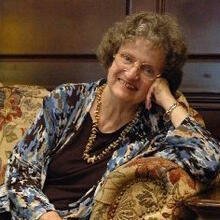Listen, or Not
Ignatian wisdom is universal and has blessed many (including me). No question, St. Ignatius Loyola, the founder of the Society of Jesus, meant this practical spirituality to speak in all times, places, cultures and all life’s seasons. That original vision is fine-tuned and fresh in the hands of two very different Jesuit spiritual masters. Mark Mossa and Mark Thibodeaux, both Jesuit priests who are creative teachers, directors and ministers, bring life to the ancient path. And it is good; we who were once formed by it have reason to welcome these new treatments of spiritual life in all its depth and surprise. Each author pins down for the reader a yearning, a sometimes disturbing voice, coming out of real stories, personal pitfalls and God’s sometimes puzzling response.
Mark Mossa, long a minister for young adults, now teaches theology at Fordham University. He seems to have spent most of his life growing up; he wants to help others through the same self-doubt, darkness and blundering. With chapters like “Living in Palookaville,” “Taking the Scary Bits Out of the Freezer,” and “Who Told You That You Were Naked?” Mossa buttonholes the reader. After stumbling through most everything in life (that’s his version of the story), he puts his practical insight to work for us. “Already there” is the seemingly casual phrase he uses—insists on—to tell us how he eventually learned (and has to keep relearning) that the Lord was with him through every dilemma, every pratfall.
How does he convey this highly personal experience? Partly through one of his genuine passions, the movies. Do not scoff. Movies for him and a few generations before him capture the sharp pain of existence, of being on the planet without knowing why, Hamlet’s cry about a world out of joint and feeling totally inadequate to the task—also, about the Lord being already there and then, when he has lavished his love, expecting us to move out to others. I took the author’s advice and read each chapter slowly, as a meditation. I laughed at the recognition factors, the punch lines: “I coulda been a contenda.” Mossa leads, but does not push too far ahead, constantly assuring us of the heartache and the heart’s ache for a Lord whose love is ours already and who, despite our confusion, will never fail us.
Mark Thibodeaux is a well-known Jesuit novice-director, author and speaker who lives in Grand Coteau, La. He is a man who blesses many, but to whom my only tie is a kind of reader’s gratitude. A veteran high school teacher, Thibodeaux now works mostly with adults, and he clearly cares about the way language tracks for each generation. He knows how to apply ancient teachings in hard cases. He knows how to wait and help others wait—when insight seems to fail, when darkness sets in and nothing adds up. That is what Ignatian discernment is about. Hearing God’s voice (maybe out of left field) or not hearing it. Listening or not listening. Living in the question, maybe even before the question can be framed, the question lying underneath. My favorite thing about this book is not just that Thibodeaux uses the old language fearlessly (“False angel, Angel of Light”) but also that his book befriends the reader. Like any good director or spiritual writer, he stands at the intersection between not knowing and knowing. He helps us to be alert to God’s blazing unpredictability. It is not new information. No, the simple restatement of an ancient truth in our language is what we most need: “Why do I want to go to college in the first place?... What is my purpose as a lawyer in the grand scheme of things?” Thibodeaux respects our diffidence and reserve, our ways of hiding and covering up, yet shows the human heart sometimes dodging the mystery and experience of grace.
These accessible books (the authors are quick to admit) are not exactly retreats, but retreats in disguise, confronting us. A chapter, sometimes a few pages, can be enough. We are invited, we cannot say just how, into our own space with God. Then (by God’s grace, we say) the book falls away, the questions fail and the only language we can speak is not fully articulate.
There is a passage in Thibodeaux’s book to which I kept returning: “Seek God’s presence in the painful moments of your past.” The author illustrates this with a story from a man who “unconsciously used his painful past to get in touch with the pain of those he counseled.” Why did I feel this passage was speaking just to me? Was it a simple, artless revising of the tradition? Or something about a contemporary director’s understanding of the depth of the soul? Or just God’s grace? Readers will also appreciate, as I did, the book’s attempt to distill the process and make it work, encouraging readers with indexed stories, biblical examples, a glossary of such Ignatian terms as “desolation,” “consolation” and “indifference.”
So, do consider spending time with one or the other Father Mark, or both. They will challenge you. Maybe (especially Father Mossa) they’ll make you laugh at your own failings, or theirs. Either way, you will sense a kind of process—not always experienced as progress—the inching steps of not getting somewhere, but hearing and listening to the Lord who sometimes gets our attention.
This article also appeared in print, under the headline “Listen, or Not,” in the June 6, 2011, issue.








